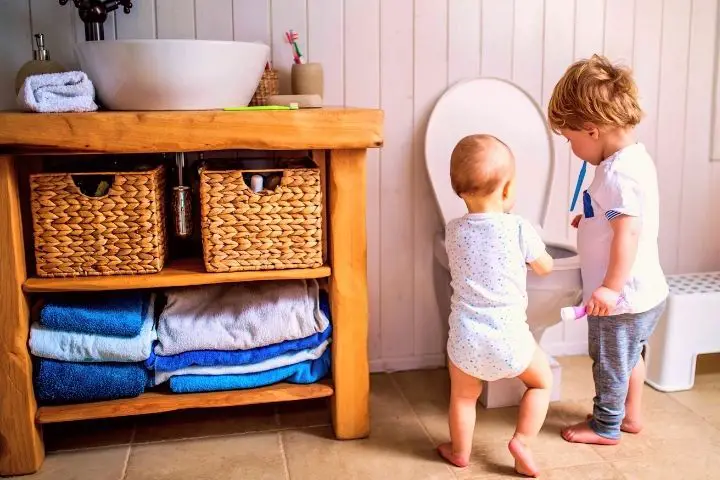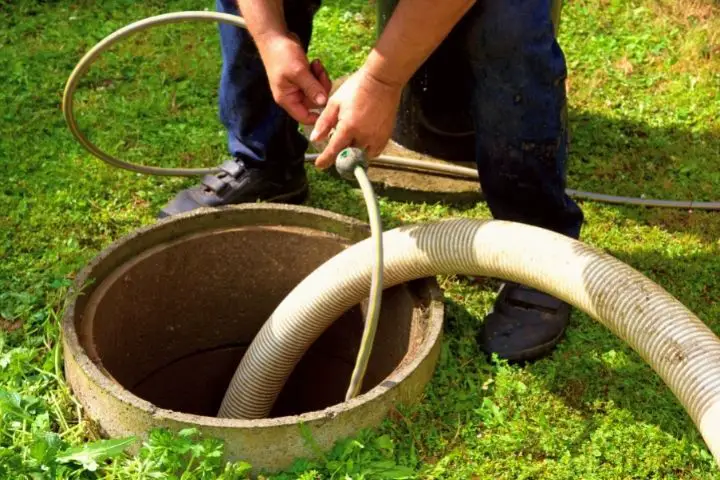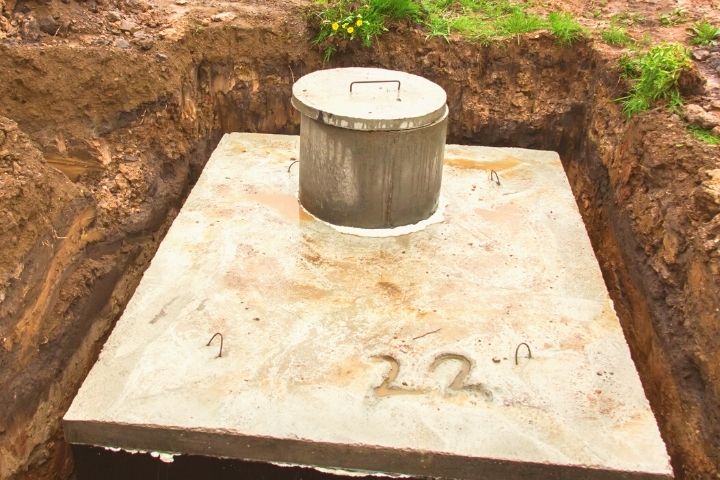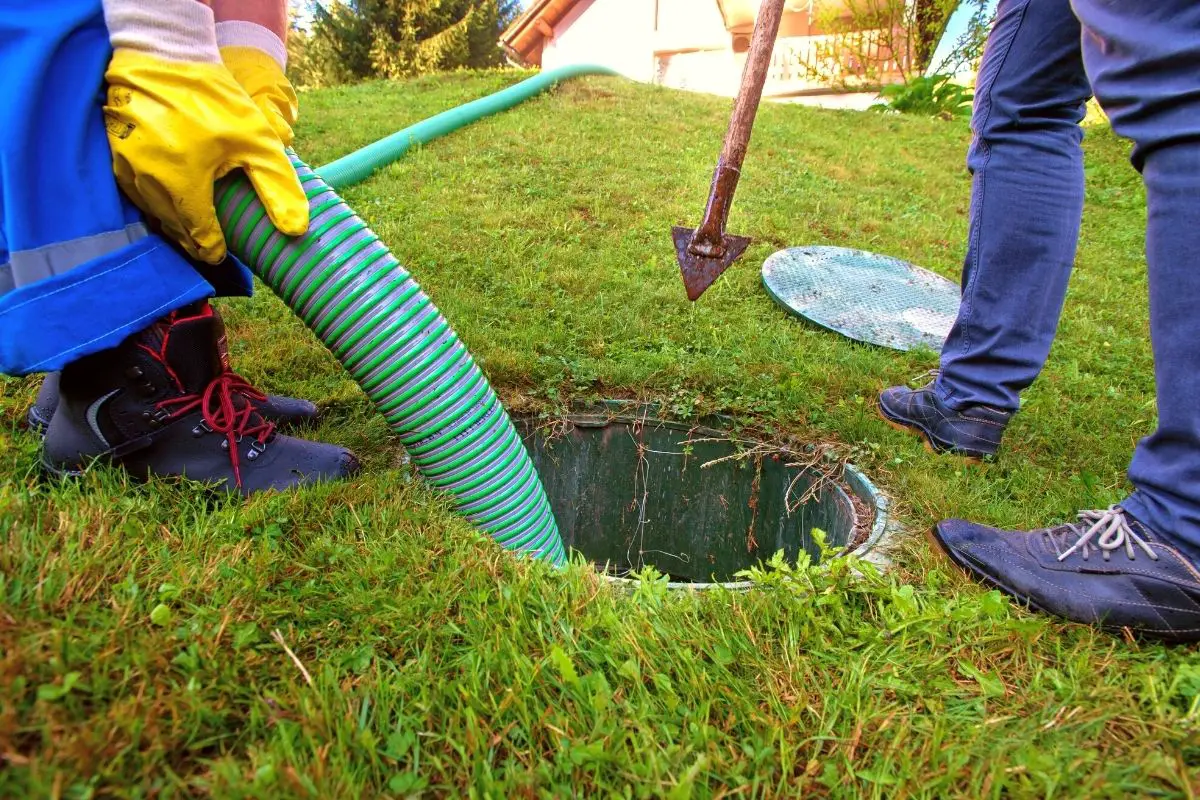What Things Can Clog a Septic Tank | Tips for avoiding clogging + 15 No-No things
Septic tanks are most often found in rural areas where services are not as accessible as in urban areas.
These waste management systems have a lot of benefits, especially for the environment. However, if your septic tank malfunctions, it can be a major headache for homeowners! It’s incredibly important to keep up with maintenance when you have a septic tank to prevent bigger issues from cropping up.
The obvious and most immediate problem one can get from a faulty septic tank will be that you have no running water in your house. To add to that, the smell of your malfunctioning septic tank can quickly become overwhelming!
The type of repairs that may be needed after, to fix your tank? They often are endless, costly and time-consuming, to say the least.
So let’s see what you can do to avoid these problems!
How Can You Avoid Clogging a Septic Tank?

There are a few simple steps which if you follow, can help avoid the nightmare that is a clogged septic tank.
- Know what you flush! Septic tanks can be sensitive to what they accept and what they don’t. The issue is that you don’t know until it’s too late.
When installing your septic tank, make sure to question the professionals about what you can and cannot flush. A little bit of mindfulness can go a long way in preventing trouble in the future.
- When installing your tank, make sure it is well insulated. Where you place it and the ground surrounding your tank can make all the difference during harsh winters.
Septic tanks, their pipes, and the solids inside the tanks are susceptible to freezing over when temperatures drop. You can insulate the pipes by adding a layer of mulch on them, and treating the soil so some level of grass remains during the winter.
- Finally, the most important step is regularly having your tank serviced by professionals! This only needs to be done every three to five years, but it is very important in making sure your tank doesn’t clog.
Just make sure that when the pros come to clean your tank, they also clear it of all solids which will accumulate and set at the bottom of the tank.
Things you should never put in a septic tank
There are a number of things that if you rinse or flush down the drain and into your septic tank, will accumulate over time and eventually clog it. The list of things never to put inside this system can include, but is not limited to:
- Food leftovers
- Cat litter
- Coffee grounds
- Cigarette butts
- Paint
- Paint thinner
- Motor oil
- Dental floss
- Diapers
- Sanitary napkins/tampons
- Plastics
- Grease
- Oil
- Chemicals
- ‘Flushable’ Baby Wipes
As a general rule of thumb, nothing biodegradable should be reaching your septic tank, even if useful for the environment!

Advantages of using DIY methods
There are a few ways to prevent a septic tank from freezing over:
- Using an electric heater to raise the temperature, slowing the process of freezing down
- Switching to fiberglass tanks – the investment may be a little hefty, but it pays in the long run and avoids rusting and slows down freezing of the system
- Thawing with a heat gun isn’t ideal, but can work! In the case that you have PVC pipes, heat tape is an option. In the cases where there is standing water in an enclosed area, heat tape can be an electrical hazard and should be avoided at all costs.
Disadvantages to using commercial products to clean tanks
There are commercial products advertised to clear frozen drains and pipe. Still, they often contain caustic substances such as sulfuric acid that can damage the plumbing itself and enter and potentially contaminate the groundwater. Hence, it’s probably a good idea to stay away from them. Though it may be tempting, you shouldn’t add antifreeze (propylene glycol) to your system, either—not only will it eventually enter the water table, it will also interfere with the biological process of the septic system.
What Benefits Can a Septic Tank Have?
Installing a septic tank is very beneficial for the environment. The tank’s technology stores and slowly breaks down waste over a period of time. This process is all natural whereas most commercial treatments use chemicals that are hazardous to the environment. This is also why it is very important you are well aware of what you are allowing to enter your septic tank.
When used correctly a septic tank slowly releases the waste, which is broken down by natural bacteria, into the surrounding soil which then acts as a natural fertilizer for the soil, grass and roots. This is an all natural cycle that reduces waste and enriches the environment.
You do have to be careful, however, as an improperly used septic tank can cause serious damage. When not used correctly and not treated regularly, the tank can be the reason of a number of diseases that can spread through the waste and soil. When things go bad with a septic tank, they can go very bad, so you have to do your research and be responsible when you decide to install a septic tank.
Other Considerations for Septic Tanks Owners
How Can You Extend the Life of a Septic Tank?
When buying your septic tank you should check customer reviews on the tanks you have shortlisted. This is a great way of getting inside knowledge on the pros and cons of the tanks you are looking at. The more research you do before you buy will help get you the most value for money possible.
Once you have found the right tank for you, where you choose to install it and the quality of the soil around it will be vital for its longevity. The installation process itself will also be very important as a poorly installed tank can lead to a number of problems in the future, so make sure you take your time in also choosing the right professionals to install your tank.
The amount you use your septic tank can also determine how long it will last you. Septic tanks can cause problems if not used often enough. If there are long periods of inactivity this can lead to pipes freezing and tanks clogging so keep this in mind. If you choose to install a septic tank for a holiday home, for example, find a system where the tank is still being put to work on a regular basis.
In these cases, alternatives for frequent visitors and guests, such as composting toilets, may be a good option to explore.
Finally, and one of the most important steps in extending the life of your septic tank, is getting it serviced by professionals. This should be done every three to five years and is very important in making sure your tank lasts for up to 40 years. It may cost a bit of money and time, but can save you a whole lot in the long run.

Can My Septic Tank Clog by Freezing Over?
It’s important to prepare for every worst case scenario with expensive equipment, and keep on top of maintenance by asking yourself, what things can clog a septic tank?
In this case, yes, a septic tank can most definitely freeze over, and clog too, should the temperature drop low enough.
A septic tank has many moving components and parts to its system. The most vulnerable to freezing are those that include water leakages, and the ones that have pipes extending from the tank to your home. Pipes leading out into drain fields and the drain fields themselves can all freeze as well – yes, the list seems endless! However, with frequent usage and upkeep, it’s less likely the septic system will freeze over and create issues.
There are some important steps you can take, on the chance that you live in a colder climate and even frequent use of the system doesn’t prevent it from freezing over:
- As septic tanks are susceptible to freezing over when temperatures drop so good insulation can go a long way in reducing tank issues. Covering your pipes in a layer of mulch is always recommended and treating the soil and grass around the pipes with good nutrients can also have great benefits, as grass can act as a natural insulator during the winter.
- What if you don’t have mulch? Funnily enough, with a cold climate and natural weather, even snow works as great insulation! With layers of snow, not super compacted, which can cause frost to penetrate the system, insulation is quite possible and can reduce the chance of a freeze over. Compacting snow can be avoided by reducing contact with foot travel or vehicles driving over.
- Seeing drainage issues before they get worse, particularly leaky taps, toilets, tanks or pipes can make the world of a difference, and help you catch something important. It can help save on time-consuming repairs and maintenance fees, just to get the small stuff sorted earlier on.
- In the worst of worst cases, a professional to take a look at and isolate the freezing of your septic system is key: it can help the issue entirely to have someone in the know help you isolate the issue and just keep the system as a holding tank. At least, till the ground is thawed out and the equipment can be replaced or fixed.





